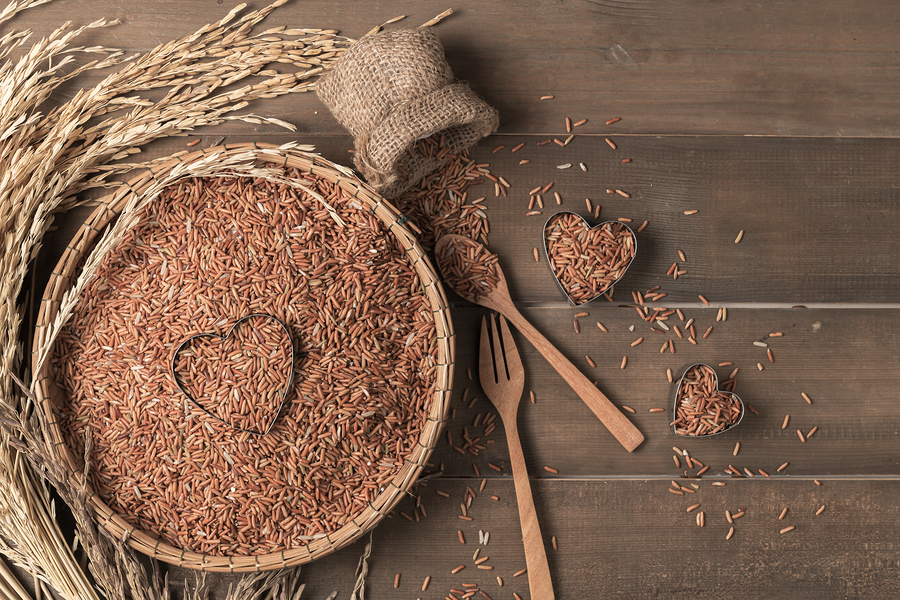
Cardiovascular diseases are a leading killer all around the globe, claiming the lives of over 17 million people worldwide each year. That equates to three in every ten deaths. In the United States alone over 800,000 people die each year of this cause.
The term cardiovascular disease refers to a range of diseases relating to the heart or blood vessels. There are four main conditions that fall under the cardiovascular disease umbrella and they are coronary heart disease, stroke, peripheral artery disease and aortic disease. The most common reasons that these problems start is that fatty deposits have built up inside the arteries or a blood clot has developed.
Many organisations have conducted their own research into how eating a diet rich in whole grains can help to prevent cardiovascular diseases. The outcome of this research has been generally positive, leading experts to believe that upping your intake of whole grains can have a genuine impact.
Before we get to how whole grains can be of benefit, let’s take a closer look at those four conditions.
Coronary Heart Disease
This disease involves a waxy substance that builds up within your coronary arteries. This is a problem because it is these arteries that supply oxygen rich blood to your heart. As time goes on, the plaque may harden, or even rupture, which will restrict the blood flow. It is even possible that blood clots will form which could completely prevent the flow of blood. This will likely result in a heart attack.
Stroke
A stroke is also sometimes referred to as a brain attack. This happens when the blood flow to the brain is cut off, depriving the brain cells of oxygen and causing them to die. As the cells continue to die, the functions controlled by the affected areas of the brain will be lost. The seriousness of a stroke can vary widely. Some people may have only small side effects, such as muscle or limb weakness, whereas some people may lose their memory or certain functions. Additionally, some people completely recover from strokes whereas some people never will.
The statistics show us that a person dies from a stroke every four minutes and it is the fifth leading cause of death in the United States. It is also the leading cause of disability among adults in the U.S.
Peripheral Artery Disease
Peripheral Artery Disease (PAD) is when the peripheral arteries narrow due to blockages. The peripheral arteries are those which go to the legs, arms, stomach and head and it is the legs which are most commonly affected. Cramping and pain in the afflicted area are common symptoms and the person may also feel more tired than usual.
People who smoke, have diabetes or high blood pressure are at an increased risk of developing PAD. Also, people with high cholesterol levels are at risk too. As the arteries continue to be blocked, people suffering from PAD also put themselves at an increased risk of having a stroke.
Aortic Disease
Aortic disease, also known as aortic valve disease, is when the valve between the main chamber of your heart and the main artery to your body malfunction. This can either be a problem that a person is born with or that develops for other reasons. When this condition presents, either the opening will be narrowed which prevents adequate blood flow, or the valve won’t close properly which causes the blood to flow backwards into the left ventricle.
What are Whole Grain Foods?
The difference between a whole grain food and a refined one is that the whole grain food will contain the entire grain. That means the bran, the endosperm and the germ are still completely in tact. When a grain is refined to make a food product the bran and the germ is removed through processing. This removes a massive amount of the nutrients from the grain. Popular whole grain foods include brown rice, quinoa, bulgur wheat and millet. All of these foods are widely available and provide a much healthier option than refined grain foods, such as white rice and white bread.
Although some refined grains have various nutrients added back into them through fortification, this is never done with dietary fiber. Whole grains on the other hand are fantastic sources of dietary fiber. The important role of fiber in the diet is well documented and it is known to be useful in lowering blood cholesterol levels and protecting against cardiovascular diseases.
As an added bonus, dietary fiber also helps to make you feel fuller for longer which can equate to eating less calories throughout the day.
The many nutrients contained within whole grains are not only great for protecting against cardiovascular diseases but also for promoting optimum health in general. A wealth of B vitamins are found in whole grains, such as thiamin, riboflavin, niacin and folate – all of which are essential for a range of biological functions.
Whole grains also contain impressive amounts of iron, magnesium and selenium. An adequate amount of iron in your system means that blood can be transported through oxygen properly, whereas magnesium contributes to over 300 functions in the body! Selenium is also very important and helps to build a strong immune system as well as regulating thyroid function.
References
1) http://www.who.int/mediacentre/factsheets/fs310/en/index2.html
Related Posts
Cigarettes May Inhibit Inflammation Treatments
Axial spondyloarthritis, also known as AxSpa, is a chronic…









